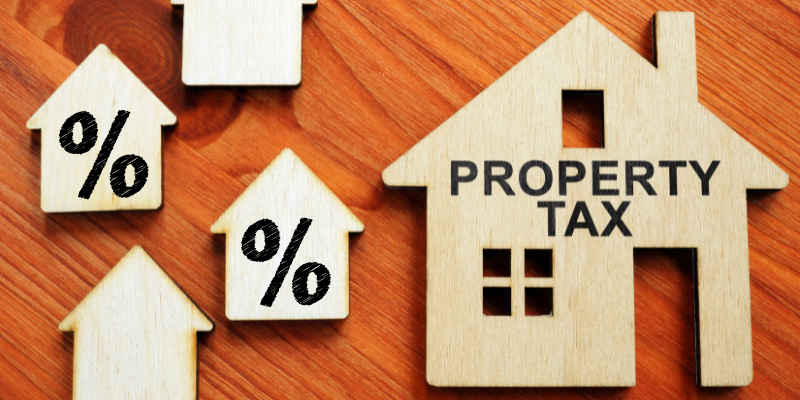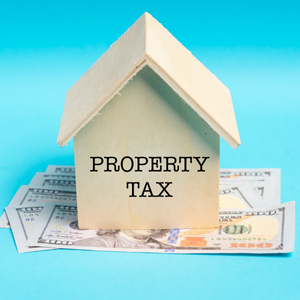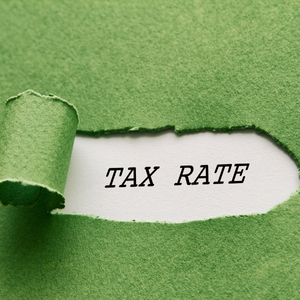
All potential home buyers and homeowners should understand the intricacies surrounding Richmond, Virginia’s, property taxes. Understanding the property taxes is beneficial in the financial planning process and the overall investment maximizing potential. This guide gives the Richmond tax rate, the impacts determining tax statements, and an easy-to-use tax calculator. This guide also gives valuable information so buyers and investors, first-time and otherwise, can understand and make transactions in this dynamic Virginian city with no added worries.
Brief Overview
Understanding the property tax system in Richmond, VA, is crucial for both investors and residents. It impacts where one could be in their financial planning and investments in real estate. This and other guides are focused on the various components that make Richmond unique in relation to these systems. This includes the monetary amounts, the processes involved in the assessment, and which Richmond systems will be necessary to complete to stay on the right side of the law and to pay the proper amounts to the obtainable systems. To pay the best amounts possible, being educated on the surrounding areas’ tax rates and the property tax changes that occur will enable the most competence, thanks to the knowledge and resources that will help the residents of Richmond to the fullest.
Key Highlights
- Richmond property taxes support essential services, influencing real estate investment decisions and ownership costs.
- Key factors affecting Richmond property tax rates include the city budget, the real estate market, and state legislation.
- Property taxes are assessed based on fair market value, aligned with Richmond’s real estate conditions.
- Residents must adhere to filing deadlines and compliance requirements to avoid penalties and ensure accurate assessments.
- Tax rate changes affect homeowners’ finances, influencing real estate market dynamics and long-term planning.
Understanding Richmond’s Property Tax System

We are going to look at how Richmond, VA’s property tax system works. Richmond property tax rates are more or less than those of other real estate. Richmond, VA, property tax rates are an important consideration for real estate investors and owners to understand. This guide explains property tax rates and property tax assessment processes to help investors and homeowners understand how property tax affects their finances.
Key Factors Influencing Property Tax Rates
The property tax in Richmond, VA, is determined by several factors, chief among which is the city’s budgetary requirements in relation to funding schools and public services, such as roads, emergency services, and public parks. As the city grows, demand for public services and infrastructure increases, thus raising tax rates. Budgetary priorities of the Richmond City Council, trends in property values, and regular assessments are all determinants of tax assessments.
How tax rates are set is also determined by state legislation and input from residents, which helps to ensure the local policies are revenue sensitive but also reasonable for taxpayers. Property owners are best able to forecast tax assessments by understanding the above factors.
How Property Taxes Are Assessed in Richmond
In Richmond, there is a fair market value for properties, which is determined by a city or county assessment office based on location, size, condition, and other comparable sales of similar properties. The value is multiplied by a tax rate and then generates an annual tax due. Richmond does regular assessments of properties to ensure taxes are based on the property in the market and to ensure the property taxes are based on changes made within the property and the shifting needs of the city.
All of this is done in a transparent and fair manner. Adoption of new guidelines is made by homeowners to close and to improve the efficiency level of the process by themselves. The level of efficiency is directly linked to their understanding of the guidelines. With this process in place, property owners in Richmond are able to manage their finances better by minimizing risks associated with property tax assessments and real estate in general.
Navigating Tax Forms for Richmond Residents

Richmond residents must understand tax forms as part of effective property ownership and real estate management. A full understanding of the forms and tax rates allows for compliance with local real estate taxes and helps prevent the incurring of unnecessary fines. Knowing when to file and which tax forms to file will alleviate some of the difficulties associated with tax compliance. This overview will identify the key forms necessary for property ownership and detail the main due dates and compliance actions needed to effectively manage real estate taxes.
Essential Tax Forms for Property Owners
To stay compliant with State and local laws Property Owners in the City of Richmond must complete the following tax-related forms. The Declaration of Real Property is your ownership document detailing your property and is used by the City in calculating property taxes. The Property Tax Exemption or Deferral Application is used by Seniors, Veterans, and Disabled homeowners. Completing this application form is helpful in the reduction of taxes owed. Homeowners with businesses must also submit business personal property forms. Real estate and rental income declarations completed by most landlords are also required for the City to properly determine the rental property tax.
Submitting the forms on time at the City of Richmond Office allows the City to budget for and provide sewer, emergency, and park services. Homeowners also have the ability to manage their own finances. Online tax forms and the Richmond Office provide assistance on forms. Your proactiveness in tax paperwork is appreciated and gives personal financial security, elevates the tax burden on the community, and encourages the development and well-being of the community.
Filing Deadlines and Compliance Requirements
In Richmond, Virginia, meeting tax filing requirements and understanding compliance requirements is essential for avoiding tax penalties and interest. Making tax payments in Richmond is a civic obligation for residents and is a means for the city to fund public safety and infrastructure. Richmond, Virginia, tax filing deadlines are in early Fall; however, deadlines may change with council ordinances. Staying aware of filing deadlines is essential for homeowners to remain financially aware and to maintain compliance with city requirements.
Compliance also includes submission of city-specific guidelines for improvements or renovations to properties that may impact assessed values. Homeowners must submit compliant forms to appeal the assessment or request an adjustment; compliance with these submission forms is required by the DOE. If Richmond residents utilize electronic filing options and tax offices, property tax compliance will be improved, alleviating potential financial issues associated with the property. This will also result in improved financial planning with regard to the homeowners’ real estate.
When dealing with real estate taxes in Richmond, Virginia, there are stepwise strategies involving advanced planning and active supervision aiming at upholding compliance and financial soundness
- Conduct periodic reviews of property tax overassessments, confirming the property tax assessments annually for accuracy and fairness.
- Set aside money monthly to ensure the smooth payment of annual tax bills
- Work with a local tax counsel to keep current and to remain compliant with tax law modifications.
- Go to city council meetings to assess probable modifications in the tax rate and/or assessments.
- Establish systems for efficient record maintenance to ensure timely filing and reporting of tax obligations.
This set of strategies assists in the financial management of property to demonstrate active management in real estate taxes in Richmond, Virginia.
Exploring Tax Rates and Their Impact

It is property owners in Richmond, Virginia, who have the most significant appreciation for understanding tax rates and their impacts. In this case, the analysis provides Richmond’s tax rates and those of the neighboring jurisdictions and determines the consequences for homeowners when the rates change. With this knowledge, homeowners can responsibly understand the monetary aspects of property ownership in RVA. This understanding is helpful to anyone who is attempting to understand tax policy and personal finance.
Analysis of Richmond Tax Rates
Richmond’s real estate property taxes help finance key services provided by the city, such as education, public safety, and public works. Although Richmond may have higher taxes than surrounding cities, this may result in greater service dependability and may be beneficial in augmenting property value over time. When real estate is compared to the surrounding cities, the differences in tax rates allow homeowners and investors to examine the service provided and the tax costs.
Analyzing the tax rates of Richmond in comparison to those of other cities also reveals the level of affordability and economic competitiveness. Buyers in a low-tax community may migrate to a city with low taxes, as such a location may result in a low property purchase price. However, a place with low taxes may cause a decrease in property value and reduce community satisfaction as a result of the limited services in the community. Analyzing such differences allows the homeowner and the investor to provide the service and the taxes to complete community goals in Richmond.
How Changes in Tax Rates Affect Homeowners
Changes in Richmond property tax rates have significant effects on homeowners’ expenses and financial planning. Homeowners can face higher or lower monthly payments or even have a period of financial relief depending on the city budget, economic conditions, and tax rate adjustments. Homeowners can get confused on this issue, even with no tax rate increases, when property values increase. With tax rate adjustments, homeowners can receive or pay more in property taxes each period and thus face a budget planning challenge.
These shifts encourage and discourage relocation and purchases that are made or planned. A lower tax rate reduces monthly payments and increases the ability to purchase a more expensive or desirable property. Customers who are rate-locked into a higher-value property often become budget-constrained, thereby suppressing overall activity in the property market. An understanding of how tax rates interact with the market and home equity is important to Richmond homeowners who actively participate in the real estate market to purchase or sell a home.
| City | Tax Rate Comparison | Services Funded | Impact on Homeowners | Real Estate Implications |
|---|---|---|---|---|
| Richmond | Higher than average | Public schools, infrastructure | Increased financial burden | Potential decrease in demand |
| Richmond Suburbs | Moderate | Parks, public safety | Varied impact | Stable market conditions |
| Neighboring Cities | Lower than Richmond | Basic services | Lighter tax load | Attractive for new buyers |
This table shows Richmond’s tax rates, services, and real estate impact compared to nearby areas.
Knowing the property tax rate in Richmond, VA, is very important for both current and potential homeowners. Use our real estate tax calculator to estimate your taxes and make educated choices. You can avoid the complexities of property tax with up-to-date local laws and by working with tax experts. Understanding property taxes is crucial for effective budgeting and overall financial planning. Continual and anticipatory work is required to maximize the benefits of your real estate investments.
If rising Richmond, VA, property tax rates have you thinking about selling, we can help make the process quick and stress-free. Whether you want to avoid repairs, sell fast, or skip the traditional listing process, The Cash Offer Company is here to simplify everything. As a trusted company that buys homes in Virginia, we offer fair cash deals and handle all the details from start to finish. Working with reliable cash home buyers in Richmond, VA, lets you avoid showings, delays, and added costs. Have questions or ready to sell? Contact us at (804) 215-4004 for a no-obligation cash offer today.
FAQs
What factors affect property taxes in Richmond, VA?
Richmond property tax rates depend on the city’s budget, the real estate market, and Virginia law. Tax rates also depend on the city’s financial needs, including funding for schools and emergency services.
How are property taxes assessed in Richmond?
Richmond property taxes are based on fair market value. Location, size, condition, and comparable sales data are evaluated. The tax is calculated by multiplying the market value by the current tax rate.
What resources help Richmond residents manage property taxes?
Richmond residents can estimate taxes using property tax calculators. Additionally, local tax offices and online resources help with tax forms, filing deadlines, and compliance.
How do Richmond property tax rate changes affect homeowners?
Property tax rates affect homeowners’ budgeting and financial planning. Rate increases can raise costs, while decreases can save money. Changes affect real estate market dynamics and homeowners’ long-term investment strategies.
How does Richmond’s property tax compare to nearby areas?
Due to city services and fiscal policies, Richmond’s property tax rates differ from those of nearby areas. Some neighboring cities may offer lower rates but fewer services, affecting property values and ownership costs.
Helpful Richmond Blog Articles
- Timeline For Selling A Home In Richmond, VA’s Real Estate Market
- Selling Your Repair-Needed Home In Richmond, VA
- Capital Gains Tax Calculator in Richmond, VA
- Closing Costs Calculator in Richmond, VA
- Cost of Living in Richmond, VA
- Fun Facts About Richmond, VA
- Richmond, VA, Property Managers
- Richmond, VA, Property Tax Rate
- Best and Worst Neighborhoods in Richmond, VA
- Is Richmond, Virginia, Safe?
- Richmond, VA, Neighborhood Map
- Best Things to Do in Richmond, VA, with Kids

